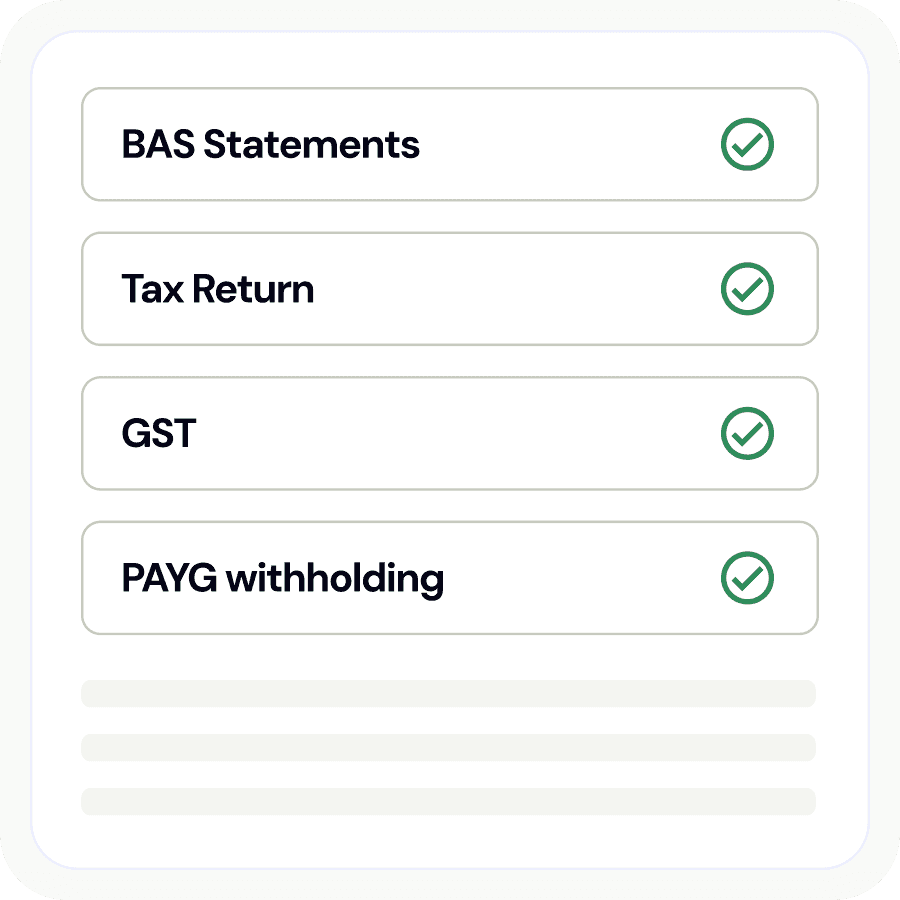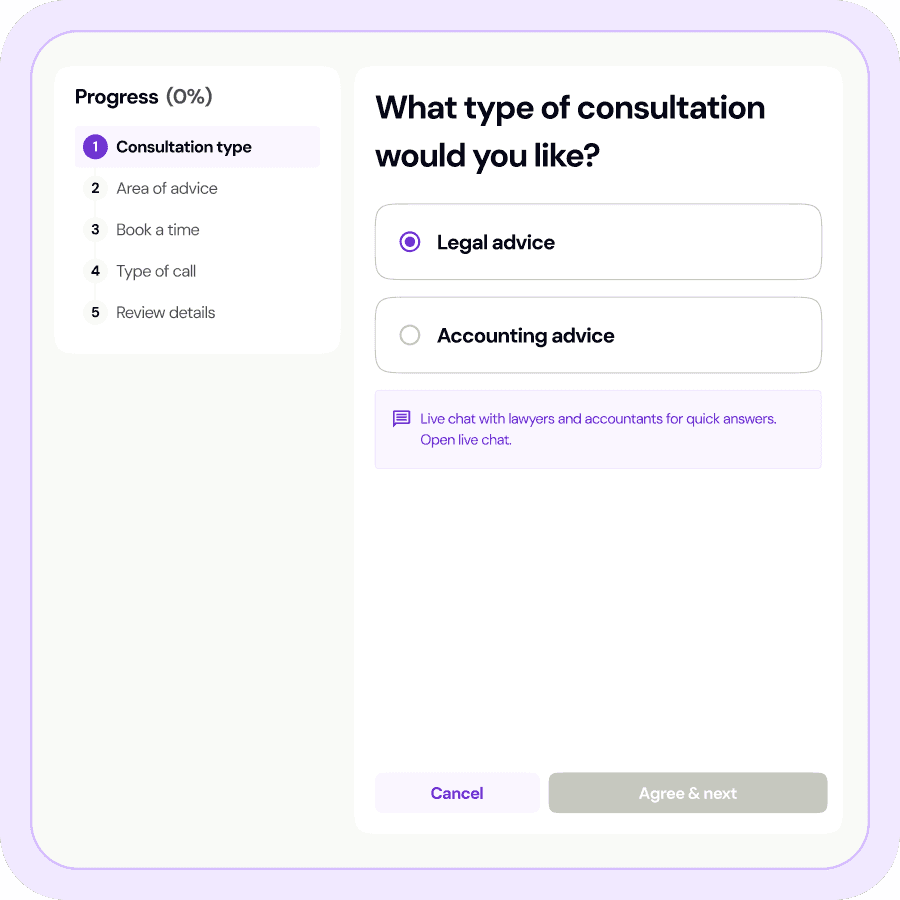Running a small business in Australia comes with many challenges, but one of the most worrying risks for business owners is being hit with a tax audit. To avoid unwelcome and often stressful scrutiny from the Australian Taxation Office (ATO), you’ll need to understand what often triggers audits.
This article unpacks the key tax audit triggers that catch the ATO’s attention, especially for small businesses. We also provide practical advice on how to reduce the chances of being audited.
Table of Contents
What is a tax audit trigger?
In simple terms, a tax audit trigger is any activity or discrepancy in your tax affairs that causes the ATO to take a closer look at your returns and financial records.
The ATO uses sophisticated technology, data matching, and risk-based targeting to pick audits carefully. This means tax audits are typically targeted investigations rather than random checks.
Both individuals and businesses are subject to these triggers. The ATO compares information from multiple sources, such as banks, employers, third-party platforms (like Uber or Airbnb), and government agencies, to identify inconsistencies or suspicious activity.
When your tax return or Business Activity Statement (BAS) raises red flags through these triggers, it may lead to further review or a formal audit.
Key ATO audit triggers in 2025
In 2025, several factors stand out as common reasons why small businesses might face an ATO audit. Here is a quick reference list:
- Claiming high or unusual tax deductions
- Failing to declare or declaring mismatched income
- Not keeping consistent records or lodging late
- Reporting outside of your industry standards
- Sudden changes in your income levels without a clear explanation
- Being the target of anonymous reports or complaints
- Incorrectly reporting asset disposals
- Omitting or incorrectly declaring international income and assets
Below, we explore these key triggers in detail.
High or unusual deductions
One of the most frequent audit triggers is claiming deductions that are inflated, inconsistent, or unusually high compared to industry norms. Small businesses often claim expenses for work-from-home costs, motor vehicle usage, and travel, but claiming excessive amounts or fluctuating deduction amounts year to year can attract attention.
The ATO benchmarks expense claims against typical industry standards, and large deviations often flag a return for review. For example, if your competitors claim 10% for motor vehicle expenses but your business consistently claims 90%, that discrepancy raises questions.
Keeping claims honest and backed by proper documentation is essential. Overclaiming, even unintentionally, increases the risk of audit scrutiny.
Undeclared or mismatched income
Failing to declare all income is a significant trigger for ATO audits. The ATO’s data matching program cross-checks reported income with information received from banks, employment wages, rental platforms, overseas income sources, and even cryptocurrency exchanges.
For example, suppose you are earning through the gig economy (such as Uber drivers and Airbnb hosts) or receiving rental income. In that case, you will need to be especially careful when reporting all earnings accurately. Missing income or mismatches in reported figures relative to third-party data often result in automated reviews.
Cryptocurrency transactions, which have grown in popularity, are under increasing ATO scrutiny, particularly where reporting is incomplete or inconsistent.
Inconsistent record keeping and late lodgements
Poor record keeping or failing to lodge tax returns, BAS, or superannuation on time repeatedly is likely to attract ATO attention. The ATO monitors compliance history and flags taxpayers who delay or skip lodgements.
Inconsistencies between records and tax returns, missing documentation, or sudden changes in income or deductions without explanation also raise flags. Even if honest, these inconsistencies prompt the ATO to investigate further to ensure compliance.
Industry-specific focus areas
Some sectors face more intense ATO scrutiny due to higher risks of cash transactions or compliance challenges. This includes industries such as:
- Construction, where cash jobs and subcontracting are common
- Hospitality, often involving cash receipts and tips
- Retail, where turnover discrepancies can occur
Being in a high-risk industry doesn’t mean you will be audited, but it does mean the ATO monitors businesses more closely and uses industry benchmarks to identify anomalies.
Sudden or unexplained changes in income or deductions
Significant or unexplained increases or decreases in income or deductions compared to previous years can trigger an audit. The ATO views such variations as potential signs of misreporting or errors, especially if you cannot provide a clear explanation or evidence for these changes.
Regularly reviewing and understanding your financial trends helps you avoid surprises and address any discrepancies proactively.
Anonymous tips or complaints
The ATO receives anonymous tips and complaints related to taxpayers suspected of fraudulent conduct. While rare, such information can prompt targeted investigations or audits.
Staying compliant and transparent reduces this risk, but being aware that third-party reports can lead to audits is important for all small businesses.
Incorrect or disguised asset disposal reporting
Failing to correctly report the disposal of business assets or hiding capital gains is a serious audit trigger. For example, not declaring capital gains tax liabilities after selling equipment, property, or other business assets can trigger an investigation.
Accurate records demonstrating purchase dates, sale prices, and associated costs are essential to substantiate your reports to the ATO.
Failure to declare foreign income or overseas assets
The ATO is increasing scrutiny on foreign income and overseas-held assets, supported by global data sharing agreements with foreign tax authorities.
Undeclared foreign earnings, investments, or assets may be discovered through these information exchanges, leading to audits. If your business engages in international activities, make sure to carefully report all relevant income and assets fully and correctly.
Remember that these are just some key tax audit triggers in the Australian taxation system. You may still get audited for various other reasons.
How to reduce the risk of triggering an audit
While there’s no foolproof way to completely avoid an ATO audit, following best practices can greatly minimise your risk.
1. Keep detailed, organised records
Good record keeping is the foundation of audit protection. Keep copies of receipts, invoices, bank statements, contracts, and supporting documents for every income and expense item. This evidence will help you substantiate claims if the ATO asks questions.
Cloud-based accounting software such as Xero, MYOB, or QuickBooks can automate this process. Update your records in real-time rather than letting paperwork pile up.
2. Accurately report all income
Under-reporting income, whether intentionally or by accident, is one of the quickest ways to attract ATO scrutiny. This includes:
- Earnings from digital platforms (e.g., Uber, Etsy, Airbnb)
- Overseas income from investments, sales, or freelance work
- Cryptocurrency transactions (the ATO receives data from major exchanges)
Always cross-check your records against bank deposits, payment platform statements, and foreign exchange transactions to ensure full accuracy. The ATO’s data-matching technology will likely detect any undeclared amounts.
If you do make a mistake, fix the error as soon as possible. While you may face some penalties, the ATO is likely to be more lenient if you self-report any inaccuracies.
3. Only claim legitimate deductions
The ATO is especially sensitive to over-inflated expenses that don’t align with your actual business activity or industry benchmarks. Only claim deductions for expenses that are:
- Directly related to earning your income
- Accurately calculated and apportioned if partly personal
- Supported by valid documentation
Before lodging, ask yourself: “If the ATO requested proof for this deduction tomorrow, could I provide it without hesitation?” If not, reconsider claiming it.
4. Lodge returns on time
Late lodgements send a red flag to the ATO that your tax affairs may not be in order. This includes:
- Income tax returns
- Business Activity Statements (BAS)
- Superannuation guarantee reports
If you find due dates overwhelming, a registered tax agent can lodge on your behalf and may even help you negotiate extended deadlines under the ATO’s tax agent program.
5. Reconcile your accounts regularly
Regular reconciliation between bank transactions and accounting records helps identify errors, duplicates, and missing entries before they snowball into bigger problems.
Doing this monthly (or weekly for high-volume businesses) ensures your books always match your financial reality. It also helps prevent mismatches between what you or your agent lodges and the data already held by the ATO.
6. Maintain a consistent compliance history
The ATO often factors in a taxpayer’s history when assessing audit risk. Consistently meeting deadlines, lodging complete and accurate returns, and promptly responding to queries will lower your perceived risk profile.
7. Work with a qualified tax professional
If taxes are getting to you, then consider hiring a professional accountant or a registered tax agent. This can be one of the best investments in lowering audit risk — and their fees count as a legitimate tax deduction.
A tax expert stays on top of changing legislation, knows the ATO’s benchmarks for your industry, and ensures you’re claiming all eligible deductions without crossing the line into risky territory.
They can also perform a pre-lodgement review of your returns to spot potential red flags before they reach the ATO, and represent you if an audit does occur. This professional oversight helps you stay compliant while giving you peace of mind.
Tax audit trigger prevention checklist
Use this checklist to help reduce your risk of an ATO audit:
Keep detailed and organised records of all income, expenses, and transactions.
Accurately declare all income, including digital, overseas, and cryptocurrency earnings.
Only claim legitimate deductions that you can fully substantiate with documentation.
Lodge all tax returns, BAS, and superannuation on or before due dates.
Regularly reconcile your accounts to ensure your records and bank statements match.
Maintain a consistent compliance history by meeting deadlines and promptly responding to queries.
Monitor for unusual changes in income or deductions and be ready to explain them.
Report any asset sales correctly and declare capital gains when required
Fully disclose foreign income and overseas assets in your tax returns.
By following this checklist, you’ll improve compliance and minimise the chance of triggering an ATO audit.
FAQ
How long after lodging can the ATO audit you?
The ATO typically has up to two years to audit your tax return, but this period can extend to longer terms in cases of significant errors or fraud.
What records should I keep to be audit-ready?
Keep all receipts, invoices, bank statements, contracts, and tax documents for at least five years, as the ATO may request these during an audit.
Can a small mistake trigger an audit?
A minor error alone usually won’t trigger an audit, but repeated or significant discrepancies, especially combined with other red flags, can increase the risk.
Preventing tax audits through ironclad compliance
Navigating tax audit triggers can feel overwhelming for small business owners. However, understanding what raises the ATO’s attention and how to respond effectively makes a big difference.
Keep accurate records, report all income, make honest claims, and lodge on time. These best practices will help you minimise your audit risks and protect your business from costly disruptions.
For legal advice, expert tax guidance, and audit support, work with Lawpath. We specialise in helping small businesses stay compliant and confident with their tax obligations.










